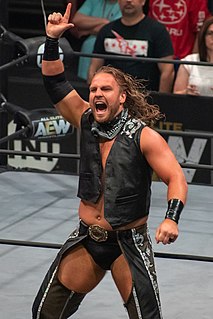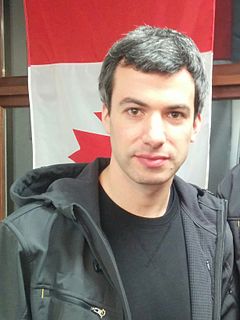A Quote by John Irving
The book works better if I know everything I can about the ending. Not just what happens, but how it happens and what the language is; not just the last sentence, but enough of the sentences surrounding that last sentence to know what the tone of voice is. I imagined it as something almost musical. Then you are writing toward something; you know the sound of your voice at the end of the story. That's how you want to sound in those final sentences: the degree that it is uplifting or not, the degree that it is melancholic or not.
Related Quotes
I always tell my students to write the story all the way through, not to play with the language and fall in love with sentences that you then have to cut. I actually find that really difficult to do; there's something so demoralizing about looking at a pile of not very great sentences. As I ease into writing every morning, I tweak a sentence and then tweak a paragraph.
Know what makes a sentence more than a random list, practice constructing sentences and explaining what you have done, and you will know how to make sentences forever and you will know too when what you are writing doesn't make the grade because it has degenerated into a mere pile of discrete items.
Every sentence has a truth waiting at the end of it and the writer learns how to know it when he finally gets there. On one level this truth is the swing of the sentence, the beat and poise, but down deeper it's the integrity of the writer as he matches with the language. I've always seen myself in sentences. I begin to recognize myself, word by word, as I work through a sentence. The language of my books has shaped me as a man. There's a moral force in a sentence when it comes out right. It speaks the writer's will to live.
If I'm writing a story and you're reading it, or vice versa, you took time out of your day to pick up my book. I think the one thing that will kill that relationship is if you feel me condescending to you in the process. And how does that happen? Well, it happens when I know more than you do, and when I know that I know more than you do, and I'm holding it back from you. So that I can then manipulate you at the end. You know, you think about like in a dating situation how terrible that would be, it's the same thing with a book.
I have tons of stuff that, you know, seems like it's a well-constructed sentence but it is not how people talk, it's how people write. So that's why I think it's sometimes easier for me to write for actors 'cause I know what's frustrating about, you know, sentences that come out just perfect. Well, who talks like that? And who of us don't overlap each other? Except on the radio, hopefully.
Writing is linear and sequential; Sentence B must follow Sentence A, and Sentence C must follow Sentence B, and eventually you get to Sentence Z. The hard part of writing isn't the writing; it's the thinking. You can solve most of your writing problems if you stop after every sentence and ask: What does the reader need to know next?
It's definitely about the rhythm of the words and how they sound together, writing one sentence and then another and another and cutting something immediately if it doesn't feel true. I come from a family of musicians and - while I have no musical abilities of my own - I think I inherited a good ear.
I think that when you're writing plays, and I think it's also true with novels, it helps to have an ear for the music of language, for what we call poetry, for the sound effects and the way that the sound can produce sensual feeling at odds with or consonant with the content of the work. Your work is also gorgeous writing. It's very unfortunate when you open a novel that everybody's loving and it's just, you know, an excruciatingly bad sentence.





































